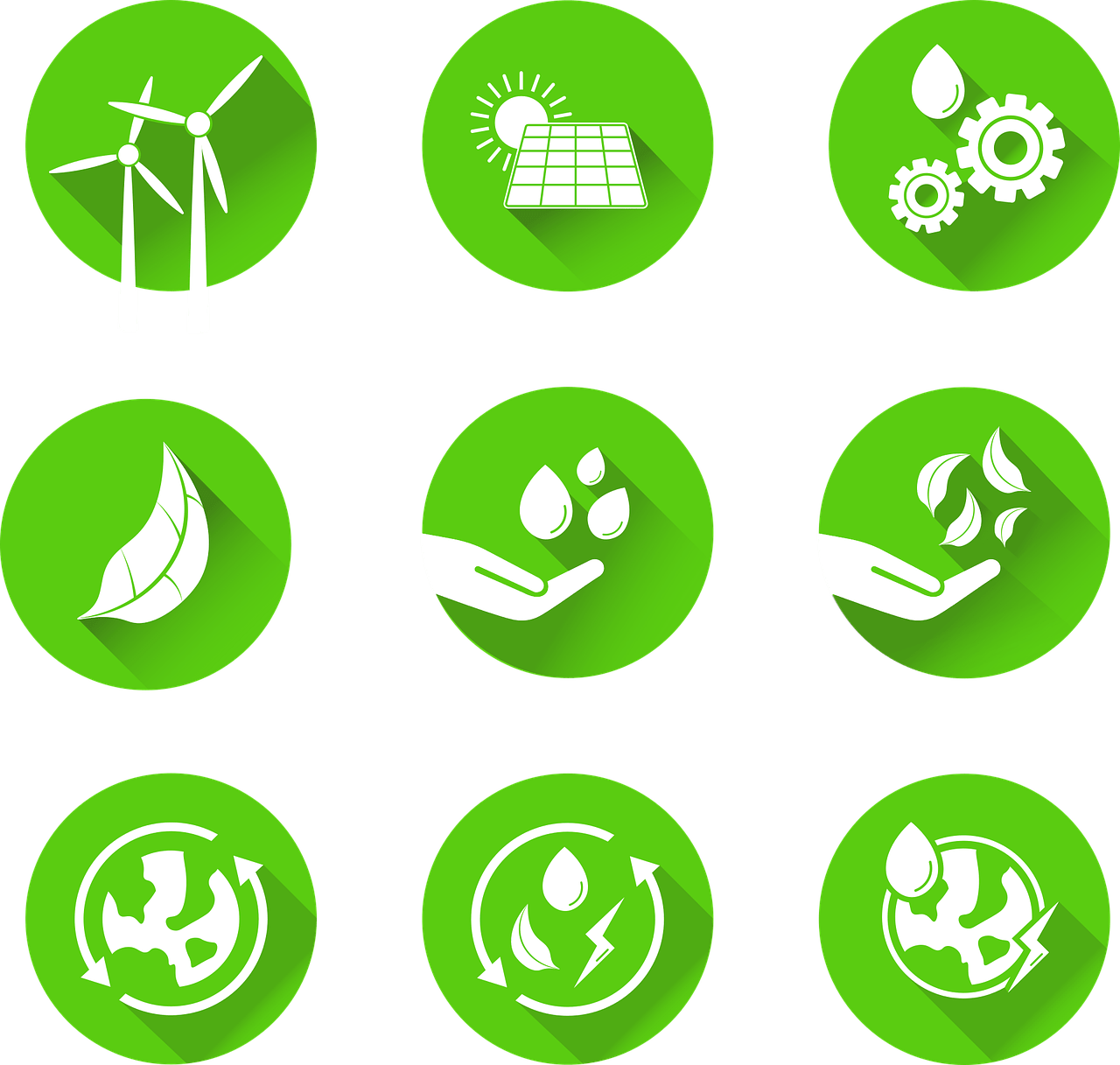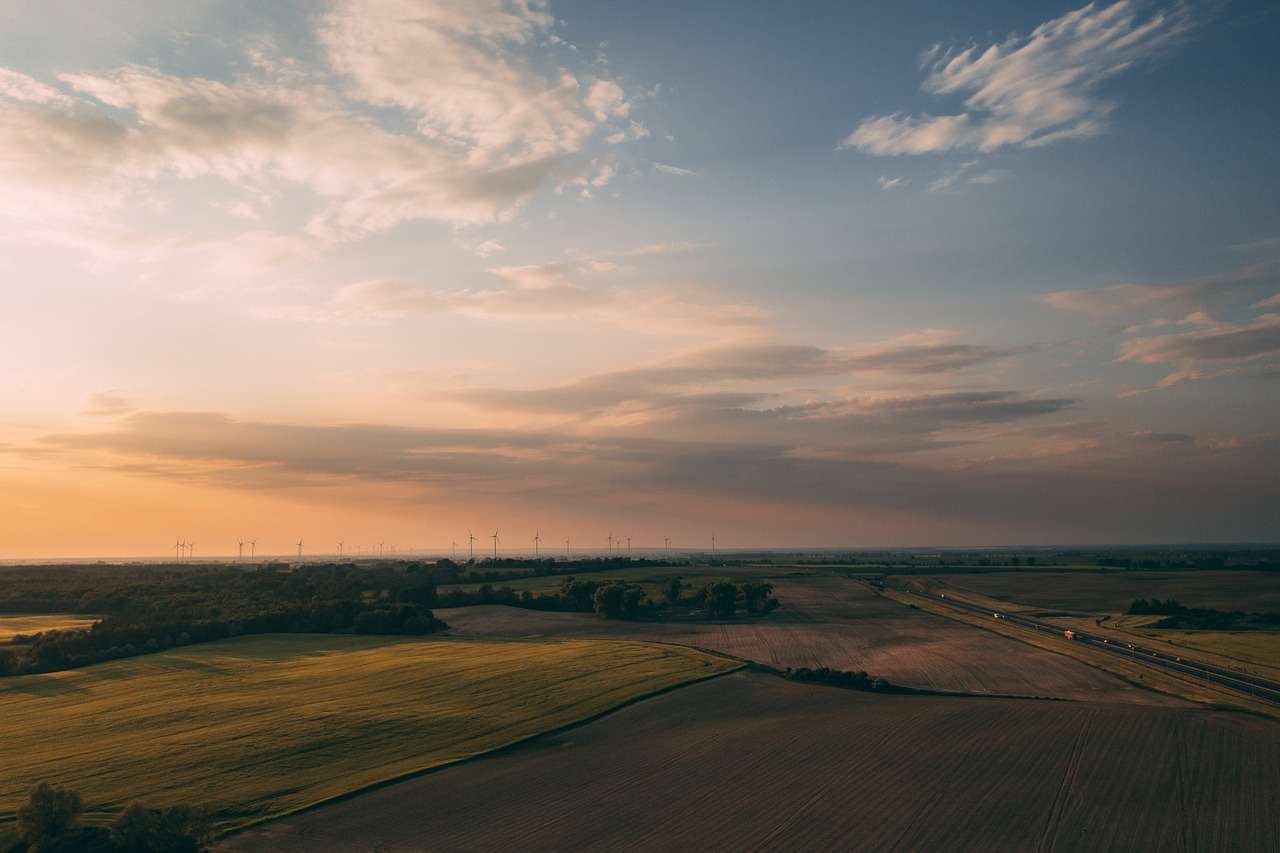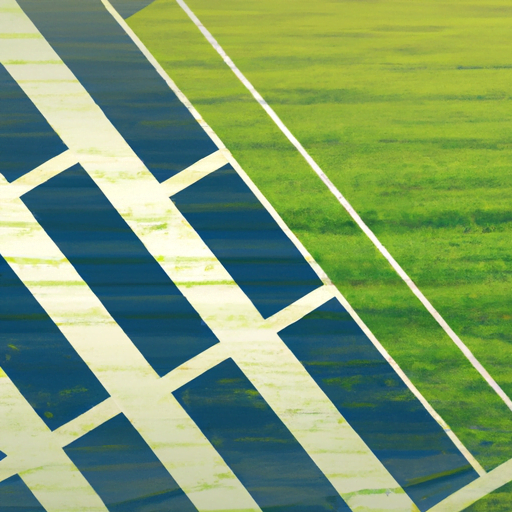Living off-grid presents a unique set of challenges that require resourcefulness, adaptability, and a self-sufficient mindset. In a world increasingly reliant on modern conveniences, the decision to disconnect from the electric grid and embrace a more sustainable lifestyle comes with its own hurdles. From navigating limited access to utilities to ensuring a stable power supply, off-grid living demands careful planning and a willingness to overcome obstacles. In this article, I will explore the main challenges faced by those who choose to live off-grid and uncover the innovative solutions that are paving the way for a more independent way of life.

Access to Resources
Water scarcity
One of the main challenges of off-grid living is the limited access to water resources. Being disconnected from the main water supply means that individuals or communities have to find alternative ways to collect and distribute water. This can involve installing rainwater harvesting systems, digging wells, or utilizing nearby water sources such as streams or lakes. However, these methods are not always reliable, especially during periods of drought or when water sources become contaminated. Off-grid dwellers need to be proactive in managing and conserving their water supply to ensure their daily needs are met.
Limited energy sources
Another significant challenge of off-grid living is the limited availability of energy sources. Without access to the main power grid, off-grid individuals or communities often have to rely on alternative energy options such as solar panels, wind turbines, or generators. However, these energy sources can be expensive to install, maintain, and upgrade. Moreover, they may not always provide sufficient energy to power all the necessary appliances and equipment, leading to lifestyle adjustments and energy conservation efforts.
Difficulty in obtaining food
Off-grid living often comes with the challenge of obtaining an adequate and diverse food supply. Without easy access to grocery stores or supermarkets, off-grid individuals or communities need to rely on their own agricultural practices, such as cultivating crops or raising livestock. This requires knowledge, skills, and resources to create a sustainable food system. Additionally, individuals may need to adapt to different climates and growing conditions, leading to a narrower range of food options compared to urban dwellers.
Access to healthcare
Being off-grid can also present challenges in accessing healthcare services. Remote locations may have limited or no access to medical facilities, doctors, and emergency services. In case of an illness or injury, off-grid individuals or communities may need to travel long distances to reach the nearest healthcare center. Moreover, the lack of reliable communication networks and transportation infrastructure can further hinder timely access to medical assistance. Therefore, self-sufficiency in managing health-related issues and learning basic medical skills becomes crucial in off-grid living.
Infrastructure
Lack of proper roads
One of the infrastructural challenges of off-grid living is the lack of proper roads. Remote areas may not have well-maintained or paved roads, making transportation difficult, especially during adverse weather conditions. This can limit individuals’ ability to commute, transport goods, or access essential services such as healthcare or education. The absence of proper roads also affects emergency response times, potentially putting off-grid communities at a higher risk in times of crisis.
Limited or unreliable communication networks
Off-grid living often means limited or unreliable access to communication networks. Remote areas may lack reliable mobile phone signal coverage or internet connectivity, making it challenging to stay connected with the outside world. This can create isolation and difficulty in reaching out for assistance or staying informed. In emergencies, the lack of communication networks can significantly hinder effective communication with emergency services or receiving timely warnings and updates.
Inadequate waste management system
Off-grid living also faces challenges in establishing an effective waste management system. Without access to regular trash collection services, off-grid individuals or communities have to develop their waste management strategies. This may include recycling, composting, or setting up small-scale waste disposal methods such as burning or burying. However, improper waste management can lead to environmental degradation, health hazards, and pollution. Therefore, off-grid dwellers must prioritize sustainable waste management practices to mitigate these challenges.

Financial Constraints
High initial investment
One of the major financial challenges of off-grid living is the high initial investment required to set up the necessary infrastructure and systems. Installing alternative energy sources, establishing water collection and storage systems, and building sustainable dwellings often involve significant upfront costs. This can be a barrier for individuals or communities with limited financial resources, preventing them from transitioning to off-grid living or requiring them to make compromises in the quality and efficiency of their systems.
Expensive maintenance costs
Off-grid living also entails expenses associated with the ongoing maintenance and upkeep of the infrastructure and systems. Solar panels, wind turbines, water storage tanks, and other components of off-grid living require regular maintenance to ensure optimal functionality. Moreover, repairs and replacements can be costly, especially in remote areas where accessing specialized services or purchasing spare parts may be difficult. These maintenance costs can put a strain on the financial resources of off-grid dwellers and require careful budgeting and planning.
Limited access to credit or loans
Obtaining financial support, such as credit or loans, can be challenging for off-grid individuals or communities. Traditional financial institutions may view off-grid living as unconventional or risky, making it difficult to secure funding. This lack of access to credit or loans can hamper the development or improvement of off-grid infrastructure and systems. Off-grid dwellers often have to explore alternative options such as crowdfunding, grants, or specialized finance programs to overcome this financial constraint.
Social Isolation
Limited social interactions
Off-grid living can result in limited social interactions due to the geographical isolation of remote areas. The absence of densely populated neighborhoods and the physical distance between dwellings can make it challenging to connect and engage with others. This can lead to feelings of loneliness and social isolation, which may impact individuals’ mental and emotional well-being. Efforts to establish local community networks or participation in off-grid living communities can help mitigate these challenges and foster a sense of belonging.
Distance from schools and community centers
Remote off-grid locations often mean significant distances from educational institutions and community centers. This can pose challenges for families with children who require access to quality education and social activities. Individuals or communities may have to explore alternative education options such as homeschooling or online learning. Establishing local community centers can also help bridge the gap by providing resources for learning, socializing, and organizing communal activities.
Less access to amenities and services
Off-grid living can result in limited access to modern amenities and services. Remote locations may lack facilities such as gyms, recreational centers, shopping malls, or entertainment venues. This can lead to a less convenient lifestyle and require individuals to adapt to alternative forms of entertainment and recreation. Off-grid dwellers often find solace in outdoor activities, creative hobbies, or DIY projects as means of entertainment and self-sufficiency.

Climate and Environmental Factors
Extreme weather conditions
Off-grid living in remote areas often exposes individuals or communities to extreme weather conditions. Harsh winters, scorching summers, strong winds, or heavy rainfall can all pose challenges to daily life. Housing infrastructure and systems must be designed and built to withstand these extreme weather conditions. Adequate insulation, ventilation, and protection against potential damage from storms or floods are essential considerations in off-grid living.
Natural disasters
Remote off-grid areas may also be prone to natural disasters such as floods, wildfires, earthquakes, or hurricanes. Living in such areas requires individuals or communities to be prepared for these events and develop appropriate emergency response plans. The lack of immediate access to emergency services further emphasizes the need for self-reliance and the ability to handle or mitigate the impacts of natural disasters effectively.
Impact on agricultural practices
The climate and environmental factors prevalent in off-grid locations directly impact agricultural practices. Different regions may have varying soil conditions, temperature ranges, or rainfall patterns, making it necessary to adapt farming techniques accordingly. Off-grid individuals or communities need to acquire knowledge and skills in sustainable agriculture, permaculture, or hydroponics to maximize food production in challenging environmental conditions. Additionally, climate change and its associated uncertainties can further complicate agricultural practices and food security.
Skills and Knowledge
Need for self-reliance
Off-grid living requires individuals or communities to develop a sense of self-reliance. Being disconnected from external resources and services means that off-grid dwellers need to rely on their own skills, knowledge, and ingenuity to meet their basic needs. This may involve learning practical skills such as gardening, carpentry, plumbing, or renewable energy system maintenance. The ability to troubleshoot, adapt, and innovate becomes essential in addressing the various challenges faced in off-grid living.
Learning technical skills
Off-grid living often necessitates learning technical skills related to renewable energy systems, water management, waste disposal, and sustainable agriculture. Understanding the operation and maintenance of solar panels, wind turbines, water filtration systems, and composting toilets, among other technologies, is crucial for off-grid individuals or communities. This acquisition of technical skills ensures the efficient and sustainable functioning of off-grid infrastructure and systems.
Knowledge of sustainable living practices
To thrive in off-grid living, individuals or communities need to have a deep understanding of sustainable living practices. This encompasses knowledge about natural resource conservation, waste reduction techniques, organic farming methods, and eco-friendly building practices. Adopting sustainable living practices not only minimizes environmental impact but also maximizes self-sufficiency and resilience in off-grid living.

Safety and Security
Protection against theft and intrusions
Living in remote off-grid areas can pose security challenges, including the risk of theft or intrusions. The absence of neighbors in close proximity or reliable security measures necessitates vigilance and precautionary measures. Installing security systems, reinforcing physical barriers, and maintaining strong community networks can help mitigate these risks. Off-grid dwellers often rely on self-defense training and the establishment of community watch groups to enhance their safety and security.
Dealing with emergencies and medical situations
Off-grid living requires individuals or communities to be prepared for emergencies and medical situations. The limited access to emergency services and medical facilities means that off-grid dwellers must be equipped to handle emergencies independently. Knowledge of first aid, emergency response protocols, and access to emergency supplies becomes essential to address injuries or medical emergencies effectively.
Fire safety measures
Living in remote areas can increase the risk of wildfires, especially in dry or forested regions. Off-grid individuals or communities need to prioritize fire safety measures to protect their properties and the surrounding environment. This involves creating defensible spaces, implementing safe cooking and heating practices, and maintaining fire detection and suppression equipment. Fire awareness and preparedness can significantly reduce the risk of fire-related incidents in off-grid living.
Psychological and Emotional Challenges
Isolation and loneliness
One of the psychological challenges of off-grid living is the potential for isolation and loneliness. Living in remote areas with limited social interactions and distance from urban centers can take a toll on mental well-being. To combat these challenges, off-grid individuals or communities often prioritize building social connections with like-minded individuals, participating in community activities, and fostering a sense of belonging. Additionally, online communities and social media platforms can provide a virtual support network for off-grid dwellers.
Mental resilience and adaptability
Living off-grid requires individuals or communities to develop mental resilience and adaptability to handle the various challenges that arise. Dealing with limited resources, extreme weather conditions, or unexpected setbacks requires a positive mindset and an ability to quickly adjust plans and strategies. Developing coping mechanisms, setting realistic expectations, and practicing mindfulness or meditation are some ways individuals can cultivate mental resilience in their off-grid lifestyle.
Coping with the lack of comfort
Off-grid living often involves a departure from the conveniences and comforts of modern living. This can include limited access to hot water, heating or cooling systems, or modern appliances. Adjusting to a more basic and simple lifestyle can be challenging for individuals accustomed to modern amenities. Off-grid dwellers need to find alternative ways to ensure their comfort, such as using renewable energy sources for heating or investing in energy-efficient systems that can meet their basic needs.
Regulatory and Legal Issues
Permits and approvals
Off-grid living may face regulatory and legal challenges related to obtaining permits and approvals for establishing infrastructure or dwellings. Building codes, zoning regulations, or environmental regulations may need to be navigated to ensure compliance and receive the necessary authorizations. Off-grid individuals or communities must familiarize themselves with the relevant regulations and engage with local authorities to obtain the required permits in a timely manner.
Compliance with building codes
Building codes and regulations often focus on safety, environmental impact, and energy efficiency. These codes may vary between regions, making it necessary for off-grid dwellers to possess knowledge and skills in complying with these standards. From proper insulation and ventilation to sustainable building materials and waste management systems, off-grid individuals or communities must adhere to building codes to ensure their dwellings are safe, sustainable, and legal.
Land and property rights
Ownership and rights to the land or property may present legal challenges in off-grid living. In certain jurisdictions, the ability to live off-grid may require a specific type of land tenure or legal arrangements. Off-grid dwellers need clear understanding and documentation of their land or property rights to avoid potential conflicts or legal disputes in the future. Engaging with legal professionals or seeking community-driven solutions can assist in navigating these complex land and property rights issues.
Lack of Access to Modern Amenities
Limited entertainment options
Living off-grid often means limited access to modern entertainment options that are readily available in urban areas. Remote locations may lack cinemas, theaters, or live performances, making it necessary for off-grid individuals or communities to find alternative sources of entertainment. This can include organizing community events, participating in outdoor activities, or developing creative hobbies and artistic pursuits as a means of entertainment and self-expression.
Restricted access to internet and technology
Off-grid living can involve restricted access to the internet and modern technology due to the lack of reliable communication networks. Limited or slow internet connectivity can hinder access to online information, communication platforms, and educational resources. Although this restriction can encourage a more present and offline lifestyle, off-grid dwellers may need to explore alternative methods of staying connected, such as satellite internet or community Wi-Fi initiatives.
Inconvenience in daily activities
Living off-grid can introduce inconveniences in daily activities that urban dwellers often take for granted. From gathering firewood for heating to manually pumping water, off-grid individuals or communities may need to allocate more time and effort towards basic tasks. This shift may require adjusting routines, implementing time management strategies, and embracing slower-paced lifestyles. The experience of inconvenience can also foster a sense of appreciation for the simplicity and self-sufficiency of off-grid living.




